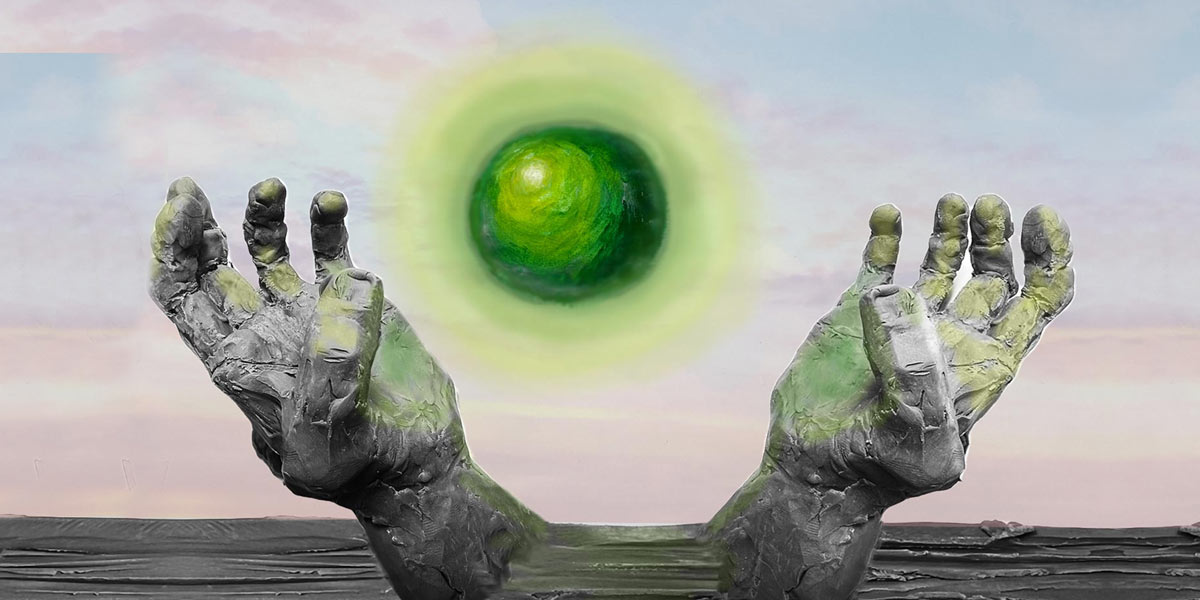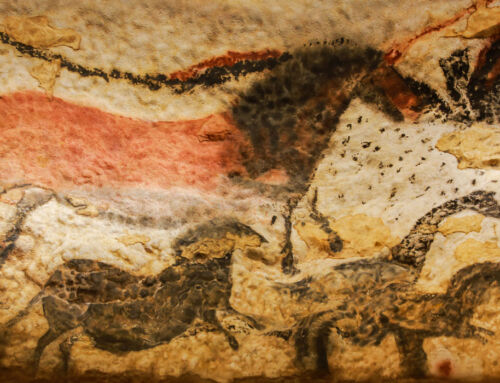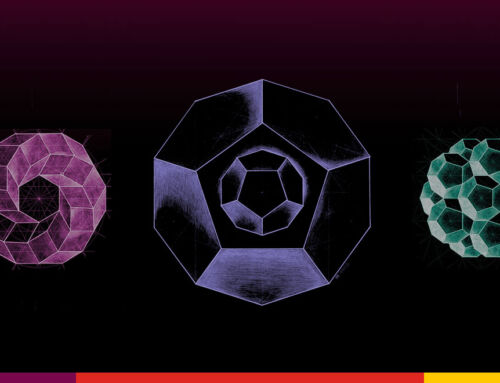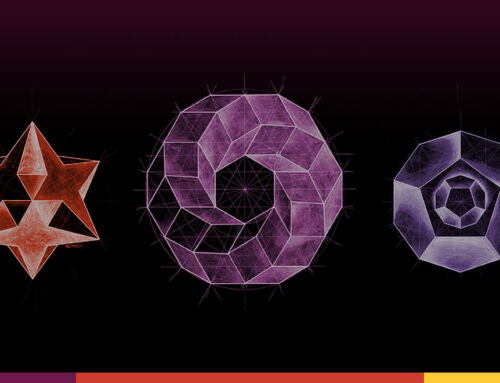Choose a term: change, recovery, healing, expansiveness, realization, actualization, wholeness, fulfillment etc., etc., etc. With each, you can be certain about one thing: the events of human transformation are completely uncertain. You can also feel certain that our growth is quickly perturbed and even damaged when we become certain about how it will go, our minds playing their greatest trick on us: that we’ve got it all figured out.
Like the silhouette of a California Cypress, its unique form carved by the daily force of cliff winds, the incoherence of the rhizome of grass entangled in its roots, and the never-again-seen murmuration of starlings above, their phantasmic pointillist shadows shifting in the currents—people transform themselves in the wild ecology of the nameless, that always-improvising landscape whose borders we only reach through poetry. This landscape is a magical place that’s truer than spoken truths, a noetic place where our revelations, realizations, encounters, and relationships roam. It is also a fragile place. Put a box of conviction around it and soon it will wither and die.
A rock you can know because it exists in the land of the non-living. But the lizard on that rock you can’t know because it exists in the world of the living, a land of interdependent relationships too complex and ever-changing to ever fully fathom, some miniscule part of it metabolized by that lizard in its own internal ecology. Use your imagination and treat that rock as if it is alive, and you do no harm. Treat the lizard like a rock and the word for that is violence. Some say the violence of naming and formulating is new, the result of scientism. They are mistaken. Humans have been defining the behavior of other humans since humans began, the cleric or shaman no different than the psychiatrist in this regard.
The destructive fallacy of imposing certainty on the uncertainty of the living means we are wrong most of the time when we try to help others in their growth. We are especially wrong when we are convinced that we know what they need, and we are dangerously injurious when our help mingles with our will for power, our actions contorted by our urge to own their experience through the power-grab of naming, and the expert categorizing of both what is broken in them and what is the well-worn path toward fixing.
Yet when our help comes from the heart, there is also a deep beauty in all the painful wrongness of certainty, the fractured Kintsugi of compassion, the same broken anguish of all love, made more lovingly destructive when forced due to the urgency to end another’s pain. As we stumble and crash through the dark at the startling sound of a desperate wail, we are bound to hold too tightly to convictions, wanting to mend what we’re confident is wrong instead of tending to the anguish itself.
Tending. We enter the nameless terrain of human transformation in the same way we tend to our fields and forests, or the way we tenderly apply a salve to a wound, or how we lift up a child with our attending gaze as they take their first steps that will someday let them walk away from us. In each, we are cautious regarding the potential damage from intervention, combining thoughtful restraint with just the opposite: a boldness to collaborate in the task and to do so whether in the light or the shadow, knowing that we can’t avoid causing pain.
To help others in their psychological emergence means to jump head-first into the knotted, entangled and muddy roots of growth. It’s to taste the terroir in the wine of life; to indulge in sharp and tangy flavors, to fully breathe the funky smell of the swamp and to avoid the temptation to get sugar-sweet. It’s to enter a path knowing there is no precise destination and that shortcuts to the Disney promise of happiness are always erosive. It is to face death and it is to saunter toward depth, toward meaning and connectedness, and belongness and love—these vital, living events that always bring an ache, slight or agonizing.
Too strongly associated with rescuing, perhaps “help” is not the best word for helping in the wilds of human transformation. “Care” is a more fitting word, its German roots of “lament,” “grieve” and “cry” all wondrously about the want, not the provision, of caring—a desperate call for response. Also beautiful, its Latin roots are about that response: “cure,” and then, tellingly, its derivatives “curious” and “secure.” Is there nothing more secure than knowing your story is being carefully heard, and in seeing its truth in the resonant response of another? Is this not the response in responsibility?
Don’t just do something, sit there. Listen, listen, listen. This is part of what it means to care about another. But more: it’s about their experience of you as the holder of their story. Yes, you — a kind of holy Ark, walking the earth, protecting their sacred text and ensuring it lasts wherever you go. To feel cared for is not just to feel minded by someone in one place. It is to feel carried by them, and to carry them in your head as carrying you. For this, humans wear a giant crown they take wherever they go, a social organ at the front of our heads, larger than that of any other animal, built in large part to imagine the inner empires of others, as they imagine ours.
And yet, again….don’t just sit there — boldly go: act on your compassion, knowing you will be wrong a lot of the time, that in this wrongness you will cause pain, and that in the repair of your sins you will be doing your finest, most careful, most intricate work, even though this work will inevitably cause its own injuries too, ones you’ll need to carefully repair.
Be a good host, in other words, the comfort of your guest your prime objective, as you continue to adjust your care to the subtle and not-so-subtle ways you cause discomfort, learning as you go. And in this comes perhaps the greatest challenge: the problem of your own hunger to be gratified by the process. And not just the hunger for the classic and obvious forms of gratification, and not only for the power of expertly owning another’s experience, but for the smaller and more frequent feedings, the most miniscule of these simply the joy of witnessing another heal or change, when many of your guests can’t or won’t. There are, of course, other cravings that are more self-serving, like the sense of fulfillment that your work is admired by your guest, the contentment that they take your advice and follow it, the warmth of them carrying you with them long after they leave, and–most seductive and most frequent–the pride that you had influence on their growth.
Each time you aim to be gratified by the person under your care, you simplify their unfathomable complexity and, in small ways and large, denigrate their own capacity to heal regardless of your actions. So, try your hardest to delay your own gratification for the hours after work, when you’re rightfully the center of attention, need your own help, look for the sparking efficacy in telling a good joke, or just want to engage in a convivial night out. And also know that you’ll fail and fail and fail at delaying it when you are working. You’re human; your internal life was built from the bottom up by the quest to be gratified by those around you. It’s impossible to eliminate this tendency.
That may be a good thing.
When does our oath to “do no harm” become therapeutic nihilism, the belief that there is nothing to do at all; or our fanaticism about the hubris of expertise dilute our respect for craft and discipline? When is our rejection of collective wisdom a sly narcissistic turn, our “gifts” of healing a divine power granted to a special few?
Please.
You are there, in that room, responsibly hosting your guest, and rightfully desiring that your efforts will lead to results, and from this desire comes all kinds of mistakes you can’t avoid, even though you should. Again, the art is in both how you restrain yourself from blundering into harm, and how you repair the results of your blunders when you inevitably make them.
When you do it “right,” it’s all wrong. In your wrongness comes the more righteous parts.
It’s wild.
And in this wildness, you need to tame your needs.
If you want the person within your care to reach deep into the wilderness of personal transformation, you need to be the source of trust, security, and reliability in their experience, combining these qualities with the willingness to improvise, and the humility to adjust when you cause discomfort. To be a container, a holder for their experience — the frame for their art. That’s not always gratifying. . .
… unless you see containing and holding and framing as art too, unless you focus not on your part in the transformation of others but on tending the fields where they can grow.
Next up: the art of making a container.







